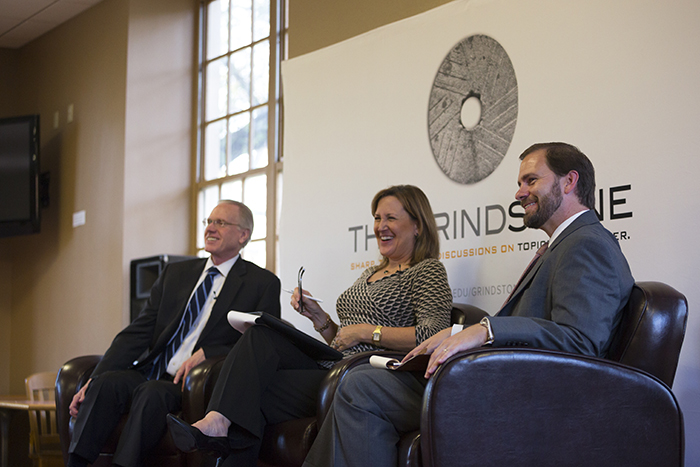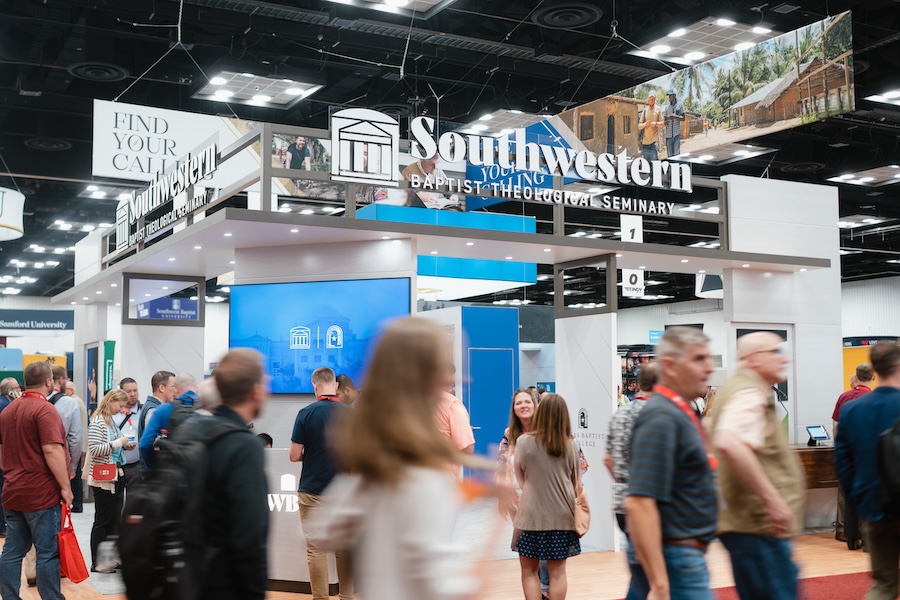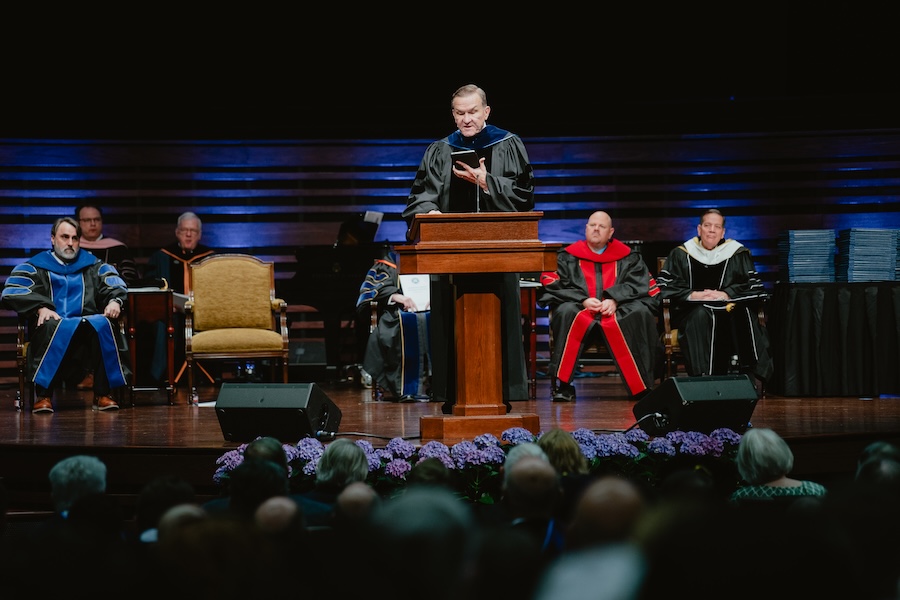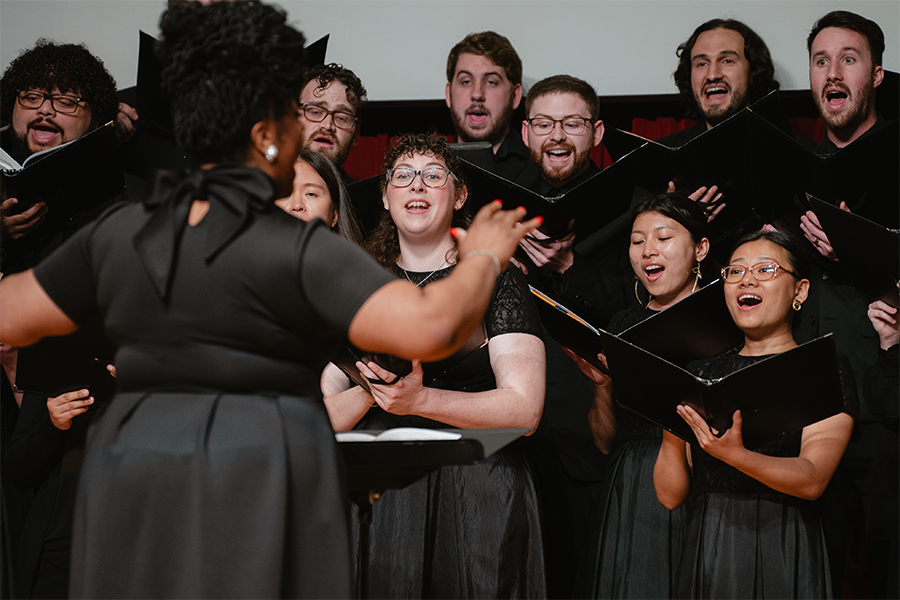Religious liberty focus of most recent Grindstone discussion

Texas Senator Konni Burton acknowledges that fighting for religious liberty is an uphill battle in today’s culture, but she says there is hope. Addressing students at Southwestern Seminary during a Grindstone discussion, Burton recalled the precedent-setting Roe v. Wade, pointing out that many thought the case would end the discussion on abortion.
“But actually, it led to more and more discussion,” Burton said. “In the last few years, we’ve made more progress, and the next generation is more pro-life than the last generation.”
Burton said pro-life legislators had to deal with the issue of abortion in incremental ways, passing small bills targeting specific aspects of the problem (such as a relatively recent bill in Texas that closed numerous abortion clinics across the state). She concluded that, just as Roe v. Wade failed to silence the discussion on abortion, so recent court decisions will fail to end the progress being made toward the protection of religious liberty.
The politics of religious liberty served as the focus of Southwestern’s Grindstone, April 4. Joining Burton on the panel was Barrett Duke, vice president for public policy and research for the Ethics and Religious Liberty Commission (ERLC). Assistant Professor of Ethics Evan Lenow moderated the discussion.
Duke noted that much of the conversation on religious liberty pertains not simply to one’s freedom of belief but also to the larger issue of freedom of practice. “There are many people who want to distinguish between religious freedom and freedom of worship,” Duke said. “They want to say, ‘You’re free to worship within the walls of your church building or your synagogue or your mosque, but once you leave the walls of that worship space, you’re under a different set of requirements and duties, and your religious freedom isn’t as sacrosanct as it is within the walls of your church building.’”
Driven by this mentality, efforts abound to restrict how people live out what their religious beliefs compel them to do. “Our position, and the position of many people around the states, is that it isn’t religious freedom if you can’t follow the dictates of your conscience in the way that you live and the way that you behave,” Duke said.
Examining the various ways in which states are handling issues pertaining to religious liberty, Duke noted that a number of municipalities have passed local ordinances preventing employers from making hiring decisions based on a person’s sexual orientation or gender identity. Such ordinances are referred to as “SOGI” laws. These laws, Duke explained, essentially prevent faith-based businesses and people of faith from living out their religious beliefs.
In response, however, some states are attempting to pass laws that invalidate these SOGI laws as discriminatory against people of faith, “which, in reality, they are,” Duke said. North Carolina, for example, passed a law saying that no local municipality can have a SOGI law that differs from state law. Tennessee passed a similar law several years ago.
Regarding such legislation in Texas, Burton said that while the Texas legislature is currently between sessions (they meet during odd-numbered years), legislators are nevertheless hard at work preparing pieces of legislation for the next session. In fact, the State Affairs Committee received a charge from Lieutenant Governor Dan Patrick to spend this interim period examining “measures to affirm first amendment religious liberty protections in Texas” so they can then make recommendations “to ensure that the government does not force individuals, organizations or businesses to violate their sincerely held religious beliefs.”
It is during this interim period that bills undergo a vetting process whereby people may voice their concerns regarding specific pieces of legislation, information about which is available online. Burton encouraged students to be involved with this process so that their voices can be heard. Addressing the notion that contacting state representatives is difficult, Lenow noted that, in order to invite Burton to Southwestern, he simply emailed her through her website and received a response later that same day.
“Make sure that you engage at every level and get good, pro-constitution people in every level, and we will continue to fight,” Burton said. “The good news is we are doing what it takes, and we’re not going to quit.”
To contact state representatives or to learn more about the upcoming session, visit house.state.tx.us or senate.state.tx.us.



